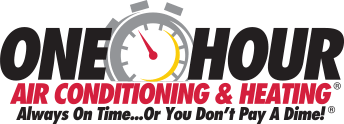
Safety Tips for Home Heating and Cooling
Heating and cooling systems are essential for a comfortable home, but without proper safety measures, they can pose serious dangers, including fires, carbon monoxide poisoning, and skyrocketing energy bills. With October’s cooler weather on the horizon, now is the time to prepare. Taking a few simple steps to safeguard your heating and cooling systems can protect your home, keep your family safe, and ensure year-round comfort without the risks.
Why Is Heating and Cooling System Maintenance Important?
Regular maintenance of your heating and cooling systems is essential for more than just comfort—it’s about ensuring safety, and efficiency, and protecting your investment, especially in places like Addison, TX, where weather can be unpredictable.
Without proper care, your HVAC systems are prone to unexpected breakdowns, leaving your home vulnerable during extreme weather conditions. Regular inspections allow professionals to identify potential issues early, such as worn parts, leaks, or electrical faults, preventing minor problems from escalating into major, costly repairs.
Maintenance directly impacts your system’s efficiency and your energy bills. A well-maintained heating and cooling system operates smoothly, using less energy to maintain your desired temperature.
Clean filters, properly calibrated thermostats, and inspected components ensure that your equipment performs at its best, which can significantly lower your utility costs and reduce overall energy consumption. This proactive approach not only saves you money but also extends the lifespan of your system, delaying the need for a costly replacement.
Safety is perhaps the most critical reason to prioritize regular HVAC maintenance. Faulty heating and cooling systems can pose serious risks, including carbon monoxide leaks, fire hazards, and electrical issues. During a maintenance visit, skilled technicians can detect and resolve these hidden dangers, protecting your home and family from potential threats.
Regular HVAC maintenance is a small investment that pays off in the form of enhanced safety, greater reliability, and the peace of mind that comes from knowing your home’s heating and cooling systems are in top working condition.
Inspecting Your Heating System Before Use
Before using your heating system, conducting a thorough inspection is essential to ensure safety and efficiency.
Pre-season checks can reveal potential hazards such as gas leaks, blockages, or faulty components that might compromise your home’s safety. Begin by examining your system for any unusual smells or noises when it starts up, as these could indicate gas leaks or mechanical problems that need immediate attention.
Inspect the heat exchanger, a vital part of your furnace, which can crack over time. A cracked heat exchanger can release carbon monoxide, a toxic, odorless, and colorless gas that poses serious health risks.
Scheduling an annual inspection with a certified HVAC technician is highly recommended. Professionals can detect hidden issues that you might overlook, ensuring your heating system runs safely and effectively.
Even if your heating system appears to be functioning correctly, regular inspections are crucial. They prevent sudden breakdowns, enhance safety, and improve system performance. Consistent maintenance not only helps avoid costly repairs but also optimizes energy efficiency, reducing your monthly utility bills.
Taking these guides ensures your heating system is not just operational, but safe and reliable for the colder months ahead.
Proper Ventilation for Heating and Cooling Systems
Proper ventilation is a key factor in the safe operation of heating and cooling systems. Without adequate ventilation, harmful gases like carbon monoxide can accumulate, creating significant health risks.
Start by inspecting all vents, flues, and chimneys associated with your heating and cooling equipment. Ensure these components are free of debris, blockages, or other obstructions that can restrict airflow and compromise safety.
Regularly examine the ventilation components for signs of rust, corrosion, or visible damage. These issues can affect the efficiency of your heating and cooling systems and pose potential safety hazards. Cleaning these components periodically helps maintain proper airflow and reduces the likelihood of dangerous gas buildup. If you detect any damage, it’s important to have a professional HVAC technician assess and repair the issues promptly.
Keeping flammable items away from heating and cooling vents is also crucial. Furniture, curtains, and other household objects should never block vents, as this can lead to overheating and increase fire risks.
To further protect your home, install carbon monoxide detectors near your heating and cooling units and in common living areas. These detectors are essential for alerting you to dangerous gas levels, allowing you to take immediate action.
Maintaining proper ventilation for your heating and cooling systems not only ensures safety but also improves overall system performance. By taking these precautions, you can keep your equipment running efficiently and maintain a safe and comfortable environment throughout the year.

Maintaining Clean Filters in Heating and Cooling Systems
One of the simplest yet most effective ways to keep your heating and cooling systems running safely and efficiently is by maintaining clean filters. Filters play a crucial role in trapping dust, allergens, and other particles, ensuring that the air circulating in your home remains clean. However, when filters become clogged, they can restrict airflow, forcing your heating and cooling systems to work harder, which can lead to overheating and increased energy consumption.
To avoid these issues, check your filters monthly, especially during peak seasons when heating and cooling systems are used frequently. Replace disposable filters every one to three months, depending on the manufacturer’s recommendations and the level of usage. If you have reusable filters, be sure to clean them regularly according to the manufacturer’s instructions. This simple maintenance task not only protects your system but also improves indoor air quality, making your home healthier.
Neglecting to maintain clean filters can cause your heating and cooling systems to overwork, leading to potential breakdowns and costly repairs. Additionally, dirty filters can affect your system’s efficiency, resulting in higher energy bills. By keeping your filters clean, you help extend the lifespan of your heating and cooling systems, enhance their performance, and ensure they operate safely.
Regular filter maintenance is an easy step that pays off significantly. Clean filters keep your heating and cooling systems running smoothly, protect your home environment, and help you save on energy costs in the long run.
Space Heater Safety Tips
Space heaters are a convenient way to add warmth to specific areas of your home, but they can pose significant safety risks if not used properly. When operating space heaters, always follow basic safety guidelines to prevent fires and other hazards.
First, ensure that your space heater has an automatic shut-off feature, which turns the unit off if it tips over. This simple feature can prevent accidental fires, especially in busy households.
Always place space heaters on a flat, stable surface and keep them at least three feet away from flammable materials such as curtains, furniture, and bedding.
Never use a space heater near water sources like bathrooms or kitchens, as this increases the risk of electrical shock.
It’s also crucial to avoid using extension cords or power strips with space heaters. These devices can overheat and cause electrical fires; instead, plug the heater directly into a wall outlet.
Another important safety measure is to never leave a space heater unattended, especially when leaving the room or going to sleep. Always turn off the heater when it’s not in use.
Regularly inspect the heater for signs of wear, such as frayed cords or loose connections, and replace it immediately if any issues are found.
Following these space heater safety tips will help you enjoy the added comfort without compromising your home’s safety.
Proper use and regular checks ensure that your space heater remains a reliable and safe heating solution during the colder months.
Avoiding Overuse of Extension Cords with Heating and Cooling Systems
Heating and cooling systems are essential for maintaining a comfortable home, but using them safely is crucial. A common yet dangerous mistake is using extension cords to power heating and cooling devices like space heaters and portable air conditioners. These appliances draw significant power, and most extension cords aren’t built to handle such a load consistently. Overloading cords can cause them to overheat, posing a severe fire hazard that could endanger your home and family.
For the safest operation, always plug heating and cooling devices directly into a wall outlet. Direct connections ensure your equipment gets the power it needs without the increased risks associated with extension cords. If your setup requires additional reach, the best solution is to relocate the appliance or have a licensed electrician install an additional outlet. This investment significantly reduces the risk of electrical fires and improves overall safety.
If you must use an extension cord, choose a heavy-duty, single cord that meets the power rating of your heating and cooling device. Avoid daisy-chaining cords, as this significantly increases the chances of overheating and electrical failure. Even with these precautions, direct wall outlet connections remain the gold standard for safely operating your heating and cooling systems.
Avoiding overuse of extension cords is not just about following guidelines; it’s about protecting your home from preventable dangers. By prioritizing safe connections, you ensure your heating and cooling systems run efficiently, keeping your household comfortable and secure.

Safe Thermostat Settings for Energy Efficiency
Setting your thermostat correctly is essential for the safe and efficient operation of heating and cooling systems.
Proper thermostat settings help your systems work efficiently without overexerting themselves, which can prevent overheating and extend their lifespan.
For winter, set your thermostat to 68°F while you’re home and awake. Lowering it when you’re asleep or away helps your heating system run efficiently, saving energy without sacrificing comfort.
In summer, set your thermostat to 78°F when you are at home and active. Raising the temperature when you’re away can significantly reduce your cooling system’s workload.
Avoid extreme adjustments, as frequently cycling between temperatures puts unnecessary stress on your heating and cooling systems, increasing the likelihood of malfunctions.
A programmable thermostat can help manage these changes automatically, optimizing efficiency and reducing the risk of system failure.
Another tip is to set the fan to “auto” rather than “on.” This setting allows your heating and cooling systems to run only when needed, conserving energy and preventing excessive wear on components. Keeping the fan on “auto” also minimizes the risk of overheating, enhancing both safety and efficiency in your home.
Using safe and efficient thermostat settings not only protects your heating and cooling systems but also keeps your energy bills manageable. By following these guidelines, you can ensure a comfortable and safe environment while optimizing system performance throughout the year.
Recognizing Signs of Carbon Monoxide Poisoning
Carbon monoxide (CO) is a silent, invisible killer that can seep into your home from faulty heating and cooling systems, turning a safe space into a deadly environment without warning. This odorless, colorless gas can strike without notice, making it crucial to recognize the warning signs before it’s too late.
Symptoms of carbon monoxide poisoning—such as headaches, dizziness, nausea, and confusion—are easily mistaken for common illnesses, but they can escalate rapidly, leading to unconsciousness or even death. If multiple household members suddenly feel unwell, don’t ignore it—it could be carbon monoxide.
Protect your family by installing carbon monoxide detectors near all heating and cooling appliances, as well as in key areas like bedrooms and living spaces. These devices are your only reliable defense against this deadly gas, sounding an alarm when levels become dangerous. Test detectors monthly and replace batteries regularly to ensure they work when you need them most; a dead or malfunctioning detector can be a fatal oversight.
If your detector goes off, act immediately—leave your home, get fresh air, and call emergency services. Never attempt to fix the problem yourself or re-enter the home until professionals have thoroughly inspected your heating and cooling systems. Regular maintenance, such as checking for cracks in the heat exchanger or gas leaks, is also critical in preventing carbon monoxide buildup.
Recognizing the signs of carbon monoxide poisoning and taking proactive measures isn’t just about maintenance—it’s about protecting lives. Don’t take chances with carbon monoxide; your vigilance and preparedness are the best safeguards for your family’s safety.
Cooling System Safety During Peak Summer Months
During the scorching summer months, cooling systems become essential for keeping your home comfortable. However, without proper maintenance, these systems can pose safety risks, including refrigerant leaks, electrical issues, and overheating.
To ensure your cooling system operates safely and efficiently, start by scheduling a pre-season inspection with a licensed HVAC professional. This inspection helps identify potential problems, such as faulty wiring or refrigerant leaks, before they turn into dangerous and costly repairs.
One of the most common issues with cooling systems is clogged or dirty coils. Dirty coils force your system to work harder, increasing the risk of overheating and potential fire hazards. Clean the condenser and evaporator coils regularly to maintain optimal airflow and cooling efficiency. Additionally, check the area around your outdoor unit to ensure it’s free of debris, plants, or any objects that could obstruct airflow and cause the system to overheat.
Ensure that your cooling system’s electrical connections are secure and in good condition. Loose or damaged wiring can lead to electrical shorts or fires, so it’s vital to address any signs of wear immediately. Also, remember to change or clean filters regularly. Clogged filters can restrict airflow, forcing your cooling system to work harder and increasing the chances of overheating.
By taking these preventive steps, you can keep your cooling system running safely and efficiently during peak summer months. Regular maintenance not only extends the life of your system but also ensures that your home remains a safe and comfortable refuge from the summer heat.
Conclusion
Proper maintenance of heating and cooling systems is essential for safety, efficiency, and comfort. By following regular maintenance routines, inspecting your systems, and addressing issues early, you can prevent costly repairs and protect your home from hazards like carbon monoxide leaks and electrical failures.
Choosing One Hour Air Conditioning & Heating of Dallas ensures expert care from professionals dedicated to keeping your systems in top condition. Don’t wait for problems to arise—contact us today to schedule your maintenance and keep your home safe and comfortable year-round.
FAQ
-
How often should I change my HVAC filters?
You should change your HVAC filters every one to three months, depending on usage and the type of filter. Regular filter changes keep your heating and cooling systems running efficiently and maintain good indoor air quality.
-
What are the signs my heating system needs maintenance?
Common signs include unusual noises, uneven heating, frequent cycling, or increased energy bills. If you notice any of these, it’s best to schedule an inspection to avoid potential hazards.
-
Are there specific safety concerns with electric space heaters?
Yes, electric space heaters can pose fire risks if not used properly. Always keep heaters on a flat surface, away from flammable materials, and never leave them unattended when turned on.
-
How can I improve ventilation in my home for better air quality?
Regularly inspect and clean your vents and ensure that no furniture or objects block them. Installing exhaust fans in key areas and keeping windows open when possible can also improve airflow.
-
What should I do if my carbon monoxide detector goes off?
Immediately evacuate your home, get to fresh air, and call emergency services. Do not re-enter until professionals have inspected your heating and cooling systems and confirmed that it is safe.







